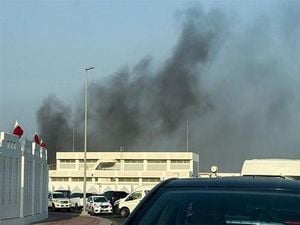A severe heat wave is predicted to blanket Brazil, with meteorological experts warning of potentially hazardous conditions as the sensation index approaches alarming levels of 70°C. This warning, grounded on projections from the Núcleo de Climatologia Aplicada at the University of São Paulo (USP), highlights both the severity and health risks associated with the extreme temperatures expected from February 12 to 21, 2024.
The regions forecasted to be most affected by this sweltering heat include the Southeast and South, with additional impact expected across the Centro-Oeste and parts of the Northeast. Cities like Rio de Janeiro, São Paulo, and even Porto Alegre are bracing for soaring temperatures, which forecasters indicate could exceed 40°C.
According to Climatempo, the heat wave could lead to sensation indices significantly surpassing what the thermometers display. For example, the company notes incidents where recorded temperatures could reach 38°C combined with high humidity, leading to perceived temperatures of 55°C. This fluctuation occurs mainly due to the interaction of moisture content and temperature on how human bodies perceive heat.
Willians Bini, a climate consultant, sheds light on this phenomenon, stating, "A questão de fazer 35, 40, 42 ºC acontece, ainda mais no verão, mas a umidade passar de 80% quando se tem essas temperaturas, é muito, muito difícil." This draws attention to the challenging conditions under which high temperatures could occur – conditions where excessive humidity could amplify the searing heat feeling far beyond the actual temperature.
The sensation index calculation plays a pivotal role. It takes both the air temperature and humidity level of the atmosphere to ascertain how hot it feels to humans. For example, if the mercury hits 41°C with 40% humidity, the resultant sensation could hover around 53°C. This calculation is far from simple, creating concern as these indexes could convert manageable heat levels to dangerous conditions swiftly.
With the rising temperatures come significant health risks. Marina Hirota, from the Federal University of Santa Catarina, warns about the dire consequences of extreme temperatures, which can lead to dehydration, heat exhaustion, and even heat strokes if precautionary measures are not taken seriously. There are stark reminders of the importance of proper hydration, avoidance of direct sunlight, and seeking shade during peak hours.
Continuing, the heat wave is categorized officially by the World Meteorological Organization as such only when temperatures average at least 5°C above normal levels for five consecutive days. The rendered prediction suggests cities such as Porto Alegre with max temperatures close to 39°C and humidity up to 95%, could see its sensation index pushed toward 70°C—conditions labeled as 'dangerous' by weather alerts issued by INMET.
Physicians and health officials alike urge preparedness as this extreme weather bears not only physical stress but potential health emergencies. Recommendations include drinking ample water, dressing appropriately in light, breathable fabrics, and reducing outdoor activities especially during the peak heat hours of 10 AM to 4 PM.
The future seems increasingly perilous. With the advent of climate change signaling more frequency and intensity of heat waves, this event serves as yet another reminder of the potential hardships looming. Experts, including Marina Hirota, contend, "Os relatos do Painel Intergovernamental sobre Mudanças Climáticas apontam que eventos extremos..." emphasizing the importance of preparation and awareness to monitor how these conditions adversely affect populations.
Citizens should remain aware and adaptable, adhering to recommendations from meteorologists and health professionals alike as Brazil experiences yet another crippling heat event. Collective efforts and individual mindfulness are key to weathering these challenging scenarios effectively.



